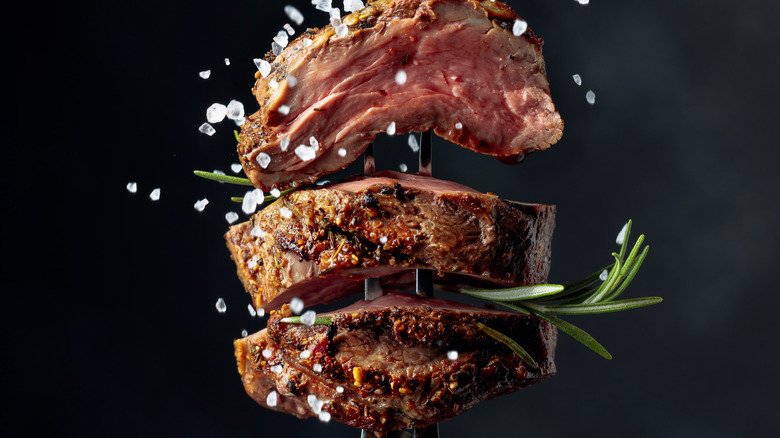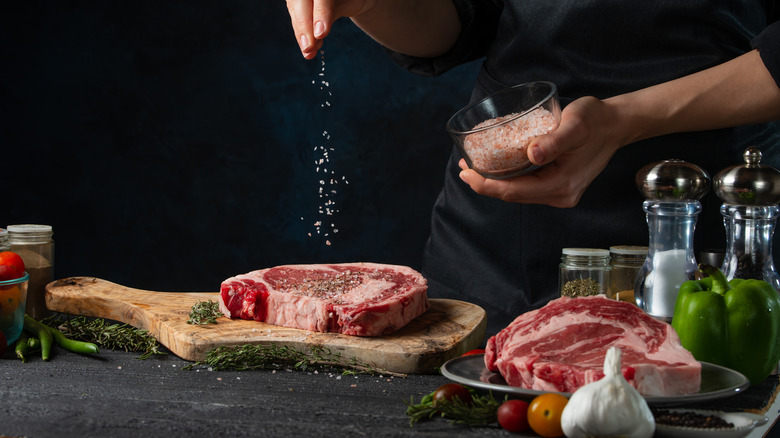The Reason Your Steak Is So Chewy
When it comes to steak, texture is everything. If your steak looks and smells perfect but gives your jaw a workout when you bite into it, it can be really difficult to enjoy — no matter how much steak sauce you douse it in. When you bite into a chewy piece of steak, you may assume that your steak has been overcooked, but according to Prime 13 Steakhouse, undercooking has a similar outcome. The reason lies in the fat and protein content of the meat and how it transforms during the cooking process.
When exposed to too much heat, the fat within the muscles gets rendered out completely, ridding the steak of the moisture that makes it tender. On the other hand, if that fat doesn't have enough time to break down, the resulting steak will be as tough as it would be if it were adequately cooked. "If you tried to eat a piece of raw beef, it would be extremely chewy because those collagen sheaths around the muscle fibers would all be intact," The Spruce Eats explains.
How to fix a chewy steak
If your steak is chewy due to undercooking, all you need to do is throw it back on the grill and allow it to reach an internal temperature of at least 145 degrees Fahrenheit (via Livestrong). However, if the steak has already been overcooked, you'll have to start over with a new one and take proper precautions. According to Livestrong, the best way to go about this is to start with a marinade. Not only do marinades add layers of flavor to your meat, but they also tenderize them.
Marinades are especially important for leaner cuts because the more active a muscle is, the tougher it'll be. Higher quality steaks — for example, porterhouse or ribeye, are naturally more tender and don't typically need one. But no matter what type of steak you start with, cooking it until it reaches the right temperature then letting it rest for five to eight minutes is the best way to avoid a chewy steak.

